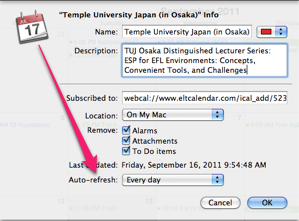Temple University, Japan Campus:
Usage-based and Form-focused Second Language Acquisition
Date: Saturday, March 8th, 2003 Time: 2:00 PM - 5:00 PM
Speaker: Nick Ellis, University of Wales
Description:
This seminar by Nick Ellis will consider the aspects of a second language that are learned naturalistically and those that need more attention or instruction. The first half will concern implicit, naturalistic, usage-based language learning. Psycholinguistic research shows that language processing is intimately tuned to the input: input frequency affects the processing of phonology and phonotactics, reading, spelling, vocabulary, morphosyntax, formulaic language, language comprehension, grammaticality, sentence production, and syntax. That we are sensitive to the relative probabilities of these patterns entails that we must have registered their occurrence each time we processed them. Ellis will consider the implications of these effects for a usage-based model of language acquisition, the nature of language representations, and the implicit learning of constructions.
This seminar is part of TUJ's Distinguished Lecturer Series. Note that each seminar is actually 2 days long, apx. 7 hours per day. The first three hours of each seminar are free and open to the public. To attend both days of the weekend seminar costs 10,500 yen for the general public (free for M.Ed. and Ed.D. alumni of Temple University Japan). Please see the TUJ Tokyo web site for full details.
Organization: Temple University, Japan Campus: the Graduate College of Education (Temple University, Japan Campus)
Cost: Temple University, Japan Campus Members: free for M.Ed. and Ed.D. alumni of Temple University Japan
Non-members: free (first three hours)
Venue: Temple University Japan, Tokyo Center, 2-8-12 Minami Azabu; Minato-ku, Tokyo
Location: Tokyo, Tokyo Metropolis, Japan
![]() Add this to iCal
Add this to iCal
![]() (Need help?)
(Need help?)
![]() Add to Outlook
Add to Outlook
![]() (Need help?)
(Need help?)
Contact Temple University, Japan Campus
Website: www.tuj.ac.jp/grad-ed/seminars
Email QR Code:






